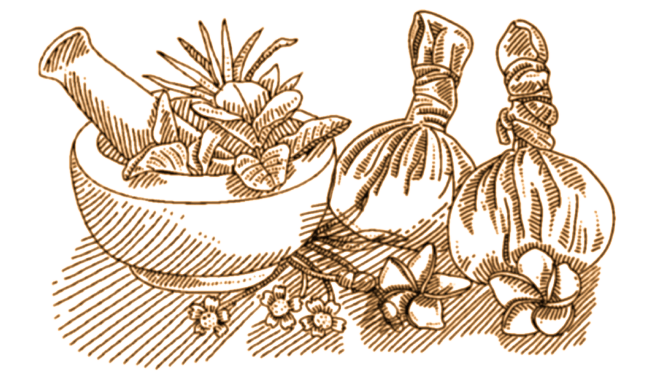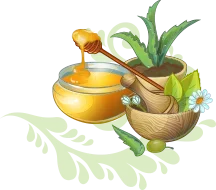
Mild oligospermia - 10 to 15 million sperm/mL.
Moderate oligospermia - 5 to 10 million sperm/mL.
Severe oligospermia - 0 and 5 million sperm/mL
Azoospermia/Ksheen Shukra
Azoospermia or Ksheen Shukra is a medical condition, in which there is almost no sperm in the semen that comes out when a person ejaculates. In this situation, the fertility of a man decreases, due to which it becomes difficult for him to become a father.
Premature ejaculation/Shukragata Vata
Premature ejaculation (PE) is when you have an orgasm before intercourse or less than a minute after you start. There is no set time when a man should ejaculate during sex, but if you ejaculate and lose your erection this soon, you and your partner may feel there's not enough time to enjoy it. It's a common problem, affecting 30% to 40% of men. Causes include physical problems, chemical imbalances, and emotional/psychological factors. Occasional PE is also known as rapid ejaculation, premature climax, or early ejaculation
According to Ayurvedic principles, premature ejaculation is the result of aggravated Vata. It is also referred to as Shukragata Vata (early ejaculation), Shukra Ativega (Delayed ejaculation), and Nishphalatvam ( inability to impregnate). Basically, the Prakupita Vata moves into Shukra Dhatu and results in early ejaculation.
Infertility/Vandhyatwa
A couple unable to conceive even after unprotected intercourse or inability to carry the pregnancy to full term is known as infertility.
Infertility in Ayurveda has been described as Vandhyatwa – failure to achieve conception by a couple of mature age, having normal coitus, during an appropriate period of ritu-chakra (menstrual cycle), regularly for over a year.
The causes of the above have been stated by Charakacarya as due to defects of the bijamsha (spermatozoa and ova). Elaborating further, he mentions regarding clarity and normalcy of ‘manas and hridaya’ (the mental state), properly functioning vayu (nervous system), acceptance of shukra (semen) by the yoni (vagina), in other words, deposition of semen high in the vagina, proper aahara (food and digestion), vihaara (good conduct and lifestyle of the couple), vichaara (thought process, mental stability) and bala (strength and health) are factors essential for procreating.
Spermatorrhoea/Dhat Syndrome
Spermatorrhoea is a condition characterized by involuntary ejaculation even in the absence of sexual activity. It may occur in the waking state during the day or at night while sleeping/dreaming. It is considered a pathological condition if a person experiences spermatorrhoea more than three times a week along with dizziness, insomnia, weakness in the lower back and legs, and low energy levels. Excessive sexual activity, masturbation, emotional imbalance, and alcohol consumption are some of the causes of spermatorrhoea.
As per the Vedic scriptures the word 'Dhat' has been derived from the word Dhatus which refers to body fluids. So dhat syndrome usually refers to a clinical condition where men attribute extreme degrees of tiredness, fatigue, depression, anxiety, impotence as well as general loss of fertility because of semen loss.
According to Ayurveda, shukra, a white, unctuous, dense, sweet, and thick substance found in men is the force of life as it has the function of garbhotpadana (reproduction). In addition, it contributes to improving the beauty, physical strength, intelligence, and memory of a man. Therefore, loss of semen has been associated with loss of vigour along with memory instabilities and lack of mental happiness. Charak Samhita has mentioned that dhat syndrome is loss of semen or substances similar to semen such as shuklameha (a white substance in urine), shukrameha (semen in urine), and sitameha (cold and sweet urine).
Having sexual relations before marriage, less physical exercise, excessive intercourse or sexual desire, low water intake, injury of the dhatus, performing sexual activities during the spring season, worrying or grieving, having sexual intercourse during the daytime, and consuming unhygienic foods are some of the factors that vitiate Shukra dhatu and lead to dhat syndrome.
Erectile dysfunction/Klaibya
Erectile Dysfunction, also termed impotence, refers to the inability to obtain or maintain an erection that is firm enough or lasts long enough to have satisfactory sexual intercourse. Over-exertion, physiological disturbances, lowered levels of hormones, and strained relationships with partners are the main causes of this disease.
Termed as ‘Klaibya’ in Ayurveda, it is strongly believed that ED can also occur due to excessive intake of incompatible foods that are high on salt, or sugar, or are sour or heavy. Since a healthy mind is important during physical activity, an imbalance in the Vata doshas plays a key role. An increase in the Vata doshas can lead to jealousy, fear, confusion, intoxication, anger, etc, and these negative emotions can ultimately cause excessive palpitation and sweating during physical activity and make one lose interest in the partner.
Ayurveda categorizes Klaibya into 4 different types which include:
Dhajabhangaja Klaibya:
This type of ED is generally caused due to excessive indulgence in sexual activities, chronic diseased conditions, damage of the penile tissue, and trauma of the male genitalia.
Bijopaghataja and Shukra Kshayaja Klaibya:
In both of these types, erectile dysfunction is characterized by reduced semen production, low sperm quality, and count.
Jaraja Klaibya:
The fourth type generally occurs due to growing age and a long-term diet deficit of essential nutrients.
Loss of libido
Low libido (low sex drive) is a decrease in the frequency and/or intensity of sexual desire that you once had. It can be temporary or long-term.
Libido is your overall sexual drive or desire for sexual activity, which includes sex with a partner and masturbation. Libido is complex and is influenced by biological, psychological, and social factors such as :-
Relationship issues.
Medical conditions.
Hormonal imbalances.
Mental health conditions.
Certain medications.
Stress.
Aging
Book An Appointment

 Mediclaim Facility Available
Mediclaim Facility Available
 In-house Ayurveda Products & Therapies
In-house Ayurveda Products & Therapies
 Experienced Ayurveda Doctors
Experienced Ayurveda Doctors






